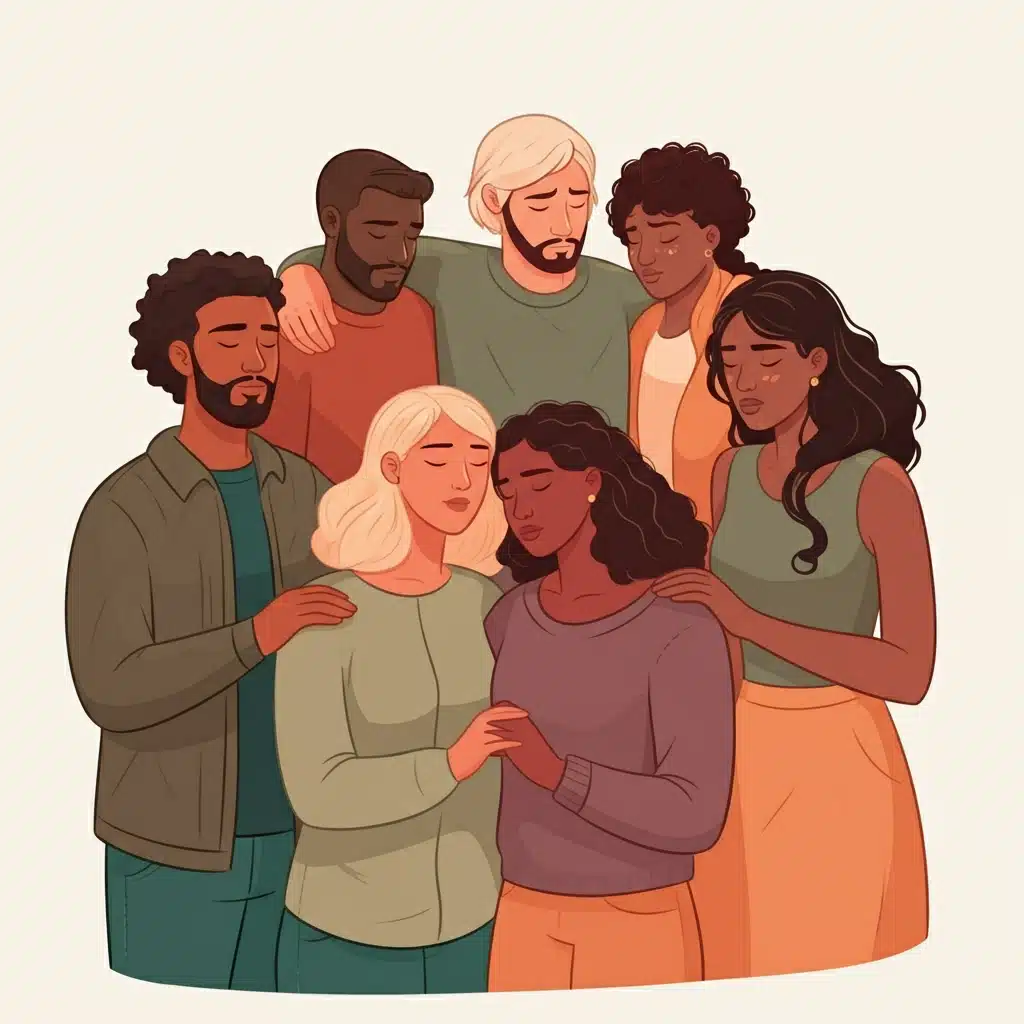By El Patron – MichaelPiri.com
Key points covered in the blog post:
Supreme Court Rulings Impact:
- The Supreme Court made it easier for the Trump administration to deport convicted criminals to “third countries” to which they have no previous connection NBC NewsPBS
- The Court largely stripped federal judges of a powerful tool they have used to temporarily halt many of Trump’s policies nationwide while litigation is pending Supreme Court limits nationwide orders that have blocked Trump’s birthright citizenship ban – The Washington Post
- Supreme Court rulings have allowed the administration to strip legal status from nearly one million people, including 500,000 immigrants from Cuba, Haiti, Nicaragua, and Venezuela The Washington PostCNBC
New Enforcement Tactics:
- The Trump administration reversed the policy of the previous administration and gave ICE permission to raid schools, hospitals and places of worship Deportation in the second presidency of Donald Trump – Wikipedia
- Immigration enforcement officers have been waiting in immigration court buildings and arresting migrants who have had their cases dismissed, a practice now documented in at least 13 states ABC NewsNPR
- ICE last month arrested roughly 30,000 immigrants, the most since monthly data was made publicly available in November 2020 Trump’s immigration enforcement record so far: High arrests, low deportations
Texas-Specific Risks:
- ICE relied on detention facilities in Texas to house the most people during FY 2025 Immigration Detention Quick Facts
- In San Antonio, attorneys witnessed several individuals being apprehended by immigration officials at a courthouse In a new tactic, ICE is arresting migrants at immigration courts, attorneys say – ABC News
- A 6-year-old boy with leukemia was arrested at immigration court along with his family ICE arrested a 6-year-old boy with leukemia at immigration court. His family is suing. | TPR
The blog post emphasizes that 71.7% of people held in ICE detention have no criminal conviction Immigration Detention Quick Facts, showing the broad scope of current enforcement. It also highlights how having an attorney can make the critical difference, as demonstrated by cases where skilled legal representation successfully reopened immigration cases ICE’s novel strategy allows for more arrests from inside immigration courts.
The post serves as both an informational resource and a call to action, emphasizing that in the current legal environment, attempting to navigate immigration proceedings without qualified legal counsel poses severe risks to personal safety and freedom.
The landscape of immigration enforcement in Texas has dramatically shifted in 2025, creating unprecedented risks for undocumented and unauthorized immigrants. With sweeping new federal policies, aggressive enforcement tactics, and recent Supreme Court rulings weakening legal protections, having skilled legal representation is no longer just advisable—it’s essential for survival in the system.
The Bottom Line: Your Freedom Depends on Legal Representation
If you are undocumented or facing immigration proceedings in Texas, the stakes have never been higher. The Trump administration’s “shock-and-awe” enforcement strategy, combined with recent Supreme Court decisions limiting judicial protections, means that one misstep can result in immediate detention and rapid deportation—often without meaningful due process.
The New Reality: Unprecedented Enforcement in Texas
Mass Deportation Campaign
Since taking office in January 2025, the Trump administration has launched what analysts call the most aggressive immigration enforcement operation in modern American history. The administration has tapped the military, federal agencies and databases, and state and local law enforcement, as well as invoked archaic laws previously used only in wartime to accomplish the most sweeping immigration enforcement policy changes in U.S. history.
The numbers tell the story: ICE last month arrested the most people in at least five years, with roughly 30,000 immigrants arrested last month, the most since monthly data was made publicly available in November 2020. Texas has become a primary focus of these operations, with ICE relied on detention facilities in Texas to house the most people during FY 2025.
Expanded Enforcement Powers
The administration has fundamentally changed the rules of engagement:
- Schools, hospitals, and churches are no longer safe: The Trump administration reversed the policy of the previous administration and gave ICE permission to raid schools, hospitals and places of worship.
- Courthouse arrests have become routine: Immigration attorneys report that immigration enforcement officers have been waiting in immigration court buildings and arresting migrants who have had their cases dismissed, a practice now documented in at least 13 states.
- Detention capacity has tripled: The passage of the “One Big Beautiful Bill” by Congress is expected to give ICE $45 billion in detention funding, tripling its capacity to detain immigrants.
Critical Supreme Court Rulings That Changed Everything
Third-Country Deportations Approved
In June 2025, the Supreme Court dealt a devastating blow to immigrant rights by making it easier for the Trump administration to deport convicted criminals to “third countries” to which they have no previous connection. This means immigrants can now be sent to countries like South Sudan—regardless of whether they have any connection to those nations or face danger there.
Justice Sonia Sotomayor wrote in a dissenting opinion that the court had stepped in “to grant the government emergency relief from an order it has repeatedly defied.” She said the court was “rewarding lawlessness” by allowing the Trump administration to violate immigrants’ due process rights.
Nationwide Injunctions Severely Limited
The Supreme Court has largely stripped federal judges of a powerful tool they have used to temporarily halt many of Trump’s policies nationwide while litigation is pending. It will reshape the early stages of the judicial process when it comes to challenging executive action.
This means that protective court orders that once shielded immigrants nationwide now have severely limited scope, making individual legal representation even more critical.
Mass Status Revocations Allowed
The Court has permitted the administration to strip legal status from nearly one million people: The Supreme Court ruled President Donald Trump can terminate the protected status of around 500,000 immigrants from Cuba, Haiti, Nicaragua, and Venezuela pending the outcome of an appeal. This came after an earlier ruling allowing the revocation of Temporary Protected Status for 350,000 Venezuelan immigrants.
Why You Cannot Navigate This Alone
Complex Legal Traps
The system is now designed to catch immigrants in legal traps. Immigration attorneys report witnessing “We saw [a] mother and one of her young children zip-tied while her other children looked on … quite distressed and very emotional” at courthouses where families thought they were safe.
Cases that were once considered “good news”—like dismissals—are now being weaponized. “Dismissals used to generally be good news,” said Michelle Brane, the executive director of the immigration support group Together and Free. “It means that the government has decided it’s not worth pursuing your case, that you’re going to be able to either be free to pursue some other avenue.” But immigration attorneys ABC News spoke with said the Trump administration is now using dismissals to detain people at immigration courts and place them into expedited removal without allowing them to fight their case.
The Difference Legal Representation Makes
Having an attorney fundamentally changes your odds of success. The case of Aliaksandr Bulaty illustrates this perfectly: Aliaksandr Bulaty is still fighting his removal. It helps that, unlike many other migrants, he has a lawyer: Malinda Schmiechen, who also represented his father’s case. “My client is someone who has no criminal background. He had filed an asylum application,” Schmiechen said.
Through skilled advocacy, Schmiechen was able to successfully argue before an immigration judge to reopen Aliaksandr’s immigration case. This means that for now he won’t be imminently deported, though he will stay in detention.
Expedited Removal Procedures
The administration is aggressively using expedited removal, which drastically curtail the ability of immigrants to defend against deportation. Without an attorney who understands these procedures, immigrants face almost certain deportation.
Specific Risks in Texas
ICE Courthouse Operations
Texas immigration courts have become particularly dangerous. In San Antonio, attorneys report several individuals being apprehended by immigration officials at a courthouse this past week. “It’s clear that it’s a coordinated campaign of fear mongering, to put fear into our immigrant communities and undermine the constitutional right to due process,” said Priscilla Olivarez, an attorney with the Immigrant Legal Resource Center in San Antonio.
Detention Conditions
Immigration and Customs Enforcement held 57,861 in ICE detention according to data current as of June 29, 2025. Alarmingly, 41,495 out of 57,861—or 71.7% held in ICE detention have no criminal conviction, showing that the administration is detaining people for immigration violations alone.
Children at Risk
The administration is even targeting children. A recent lawsuit involves a 6-year-old boy with leukemia at immigration court who was arrested along with his family and has missed a medical appointment to be treated for worsening symptoms.
What a Skilled Immigration Attorney Can Do for You
Immediate Protection
- Navigate courthouse arrests: An experienced attorney knows the new enforcement patterns and can help you avoid traps
- Challenge unlawful detention: Attorneys can file emergency motions and habeas corpus petitions
- Prevent expedited removal: Proper legal arguments can secure you a full hearing instead of fast-track deportation
Long-term Strategy
- Asylum applications: Skilled attorneys know how to present compelling cases that survive increasingly strict standards
- Family reunification: Legal counsel can help protect family members and reunite separated families
- Status adjustments: Attorneys can identify paths to legal status you might not know exist
Due Process Protection
Justices also unanimously affirmed that immigrants are entitled to due process and judicial review. However, accessing these rights requires skilled advocacy. Without an attorney, these constitutional protections become meaningless.
The Human Cost of Going Unrepresented
The stories emerging from Texas courts paint a stark picture. Immigration attorneys describe witnessing “Immigration and Customs Enforcement detain a man right outside of immigration court in Harlingen, Texas. Carlos, a Nicaraguan, was in the process of requesting asylum and had just been tricked out of his right to due process. He was now in an ICE van headed for deportation, even though he explicitly mentioned in court that his life would be at risk in Nicaragua because of his political activism.”
This is what happens when people face the system alone.
Time Is Running Out
The administration has set a goal of 3,000 immigration arrests per day, or 1 million people per year. Every day you wait to secure legal representation increases your risk of becoming another statistic.
Public opinion data shows that while Half of Americans say the Trump administration is too careless in its deportation policies, the enforcement machine continues its aggressive operations regardless of public sentiment.
Your Next Steps
If you are undocumented or facing immigration proceedings in Texas:
- Contact an experienced immigration attorney immediately—before you have any contact with ICE or immigration court
- Do not go to court alone—the new courthouse arrest policies make this extremely dangerous
- Understand your rights—but know that you need professional help to exercise them effectively
- Prepare your family—have emergency plans and legal contacts ready
Conclusion: Your Life and Freedom Are at Stake
The current immigration enforcement environment in Texas represents an unprecedented threat to undocumented immigrants and their families. With Supreme Court rulings weakening protections, aggressive new enforcement tactics, and a system designed to fast-track deportations, attempting to navigate immigration proceedings without skilled legal counsel is not just risky—it’s potentially life-threatening.
The difference between deportation and protection often comes down to having an attorney who understands the rapidly changing legal landscape and knows how to protect your rights within it. In this environment, legal representation isn’t a luxury—it’s a necessity for survival.
Don’t become another casualty of a system designed to deny you due process. Contact an experienced immigration attorney today, before it’s too late.
The information in this blog post is based on current federal policies and recent legal developments as of July 2025. Immigration law is complex and rapidly changing. This post is for informational purposes only and does not constitute legal advice. For specific legal guidance, consult with a qualified immigration attorney immediately.






